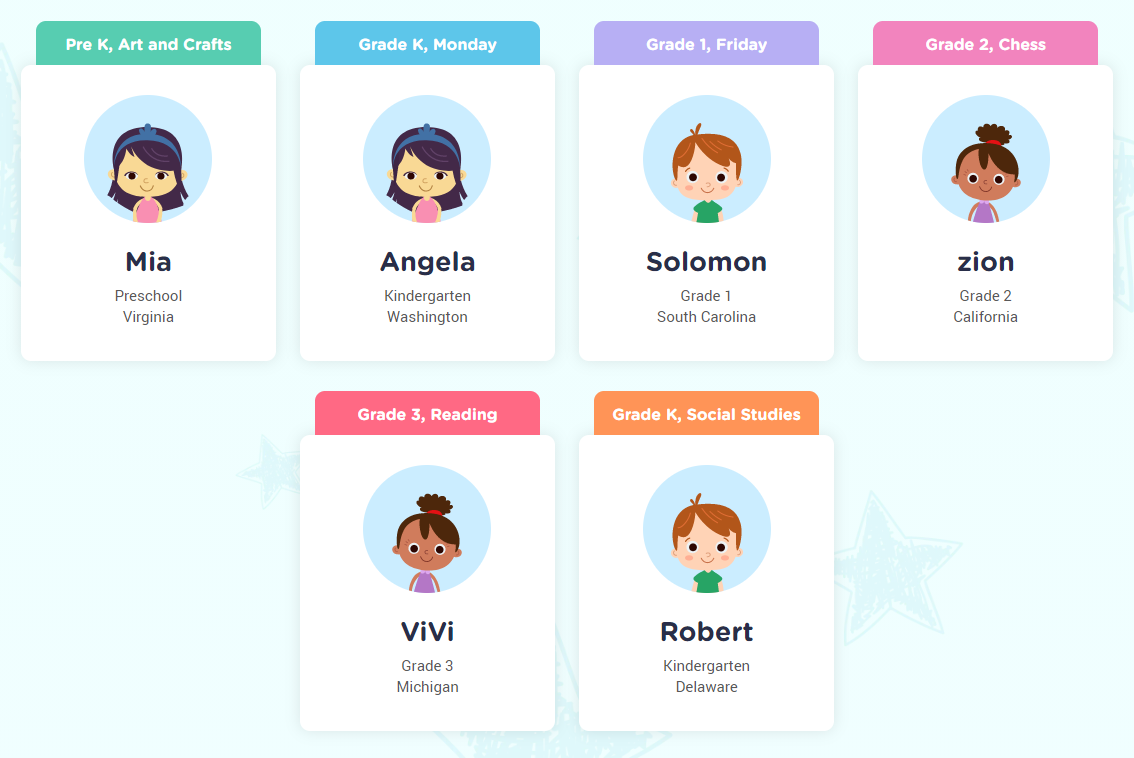Math problem-solving Normal Math Worksheets for Ages 4-9
5 filtered results
-
From - To
Discover an engaging way to enhance your child's mathematical abilities with our "Math Problem-Solving Worksheets for Ages 4-9." Specially designed to develop critical thinking and problem-solving skills, these worksheets cover essential topics such as addition, subtraction, patterns, and more. Each worksheet is crafted to provide a step-by-step approach, making learning enjoyable and effective for young learners. Perfect for classroom use or at-home practice, these worksheets help build a solid foundation in math, ensuring your child is well-prepared for future academic challenges. Explore now and watch your child's confidence in math grow!
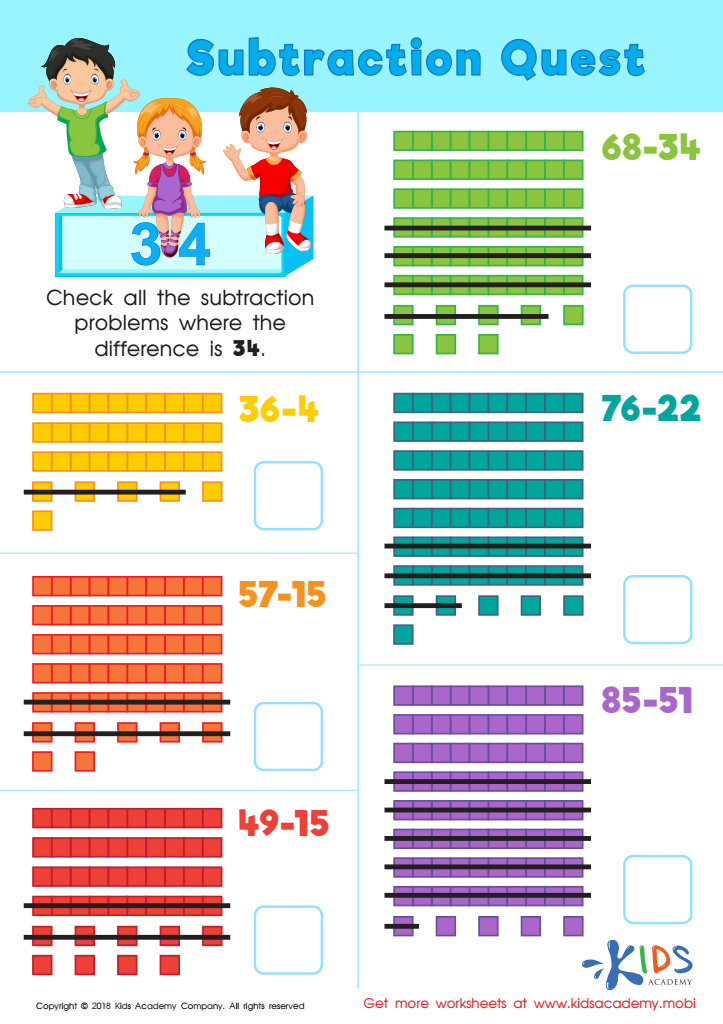

Subtraction Quest Worksheet
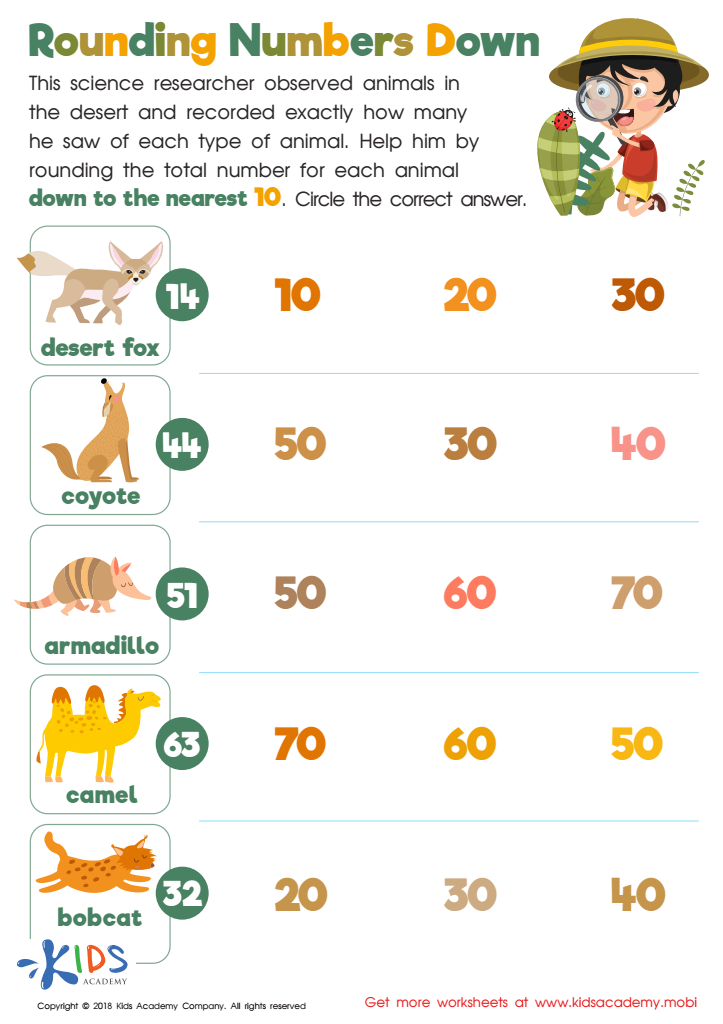

Rounding Numbers Down Worksheet
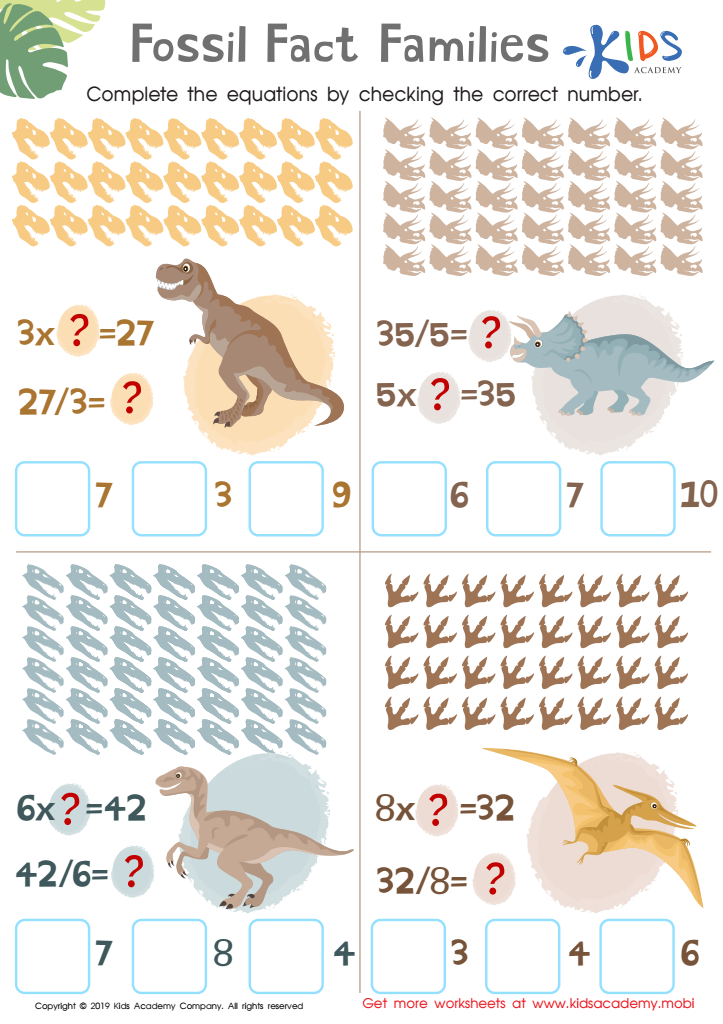

Fossil Fact Families Worksheet
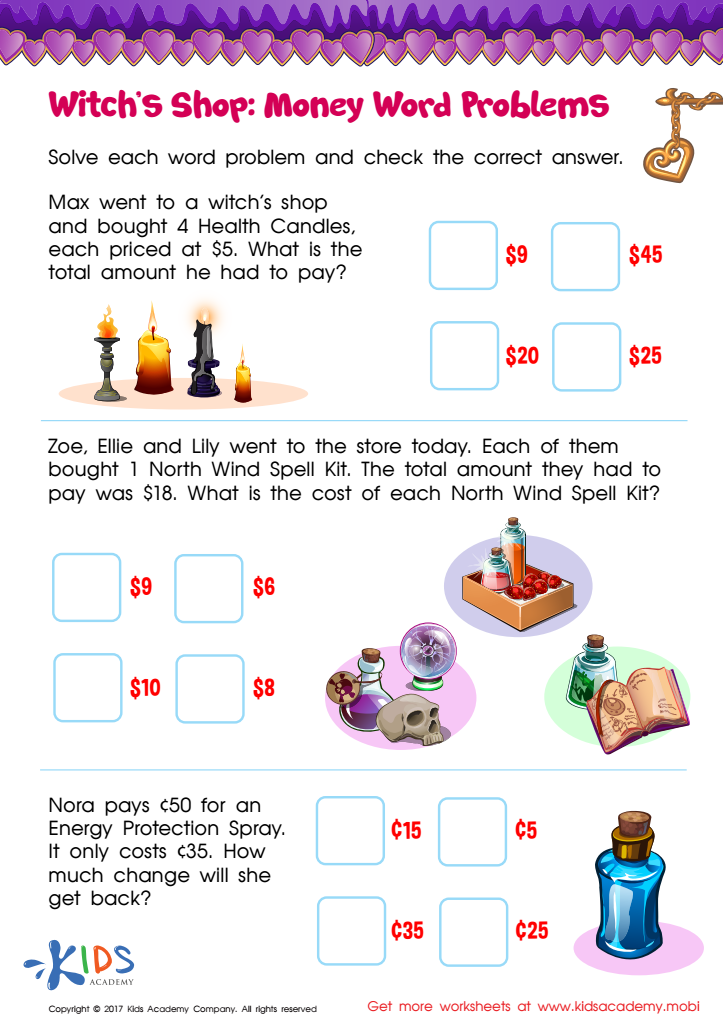

Money Word Problems Printable
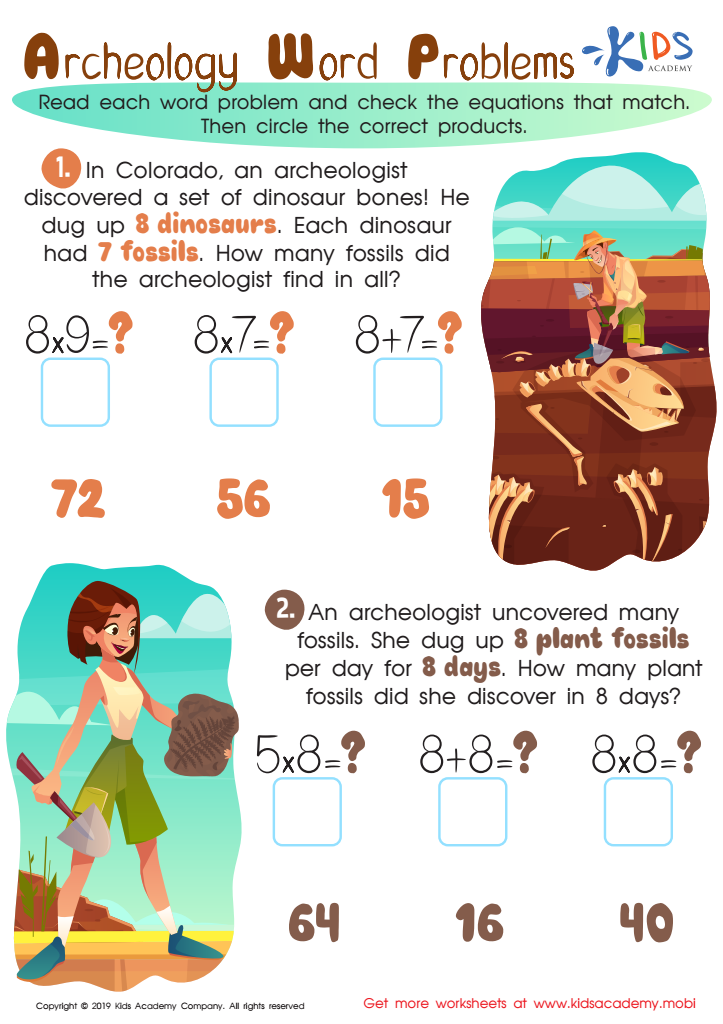

Archeology Word Problems Worksheet
Math problem-solving skills are essential for children aged 4-9 because they lay the groundwork for future academic success and daily living skills. During these formative years, kids are particularly receptive to learning and curious about their environment. Introducing them to math problem-solving nurtures critical thinking, logical reasoning, and analytical skills, which are the foundation for more complex cognitive abilities they will need throughout their lives.
For parents and teachers, focusing on normal math problem-solving fosters a positive attitude towards math early on. When children engage in age-appropriate math challenges, they experience the satisfaction of overcoming obstacles and developing a growth mindset—that is, understanding that effort leads to improvement. This attitude is crucial for their willingness to tackle difficulties in various aspects of life.
Moreover, strong early math skills are linked to better academic performance in later years, not just in mathematics, but also in reading and other subjects. Math fosters a sense of order and the ability to follow structured processes, enabling children to develop an organized approach to tasks.
In summary, by prioritizing math problem-solving for children ages 4-9, parents and teachers are investing in a child's overall cognitive development, self-esteem, and future educational success, creating a strong foundation for lifelong learning.
 Assign to My Students
Assign to My Students




